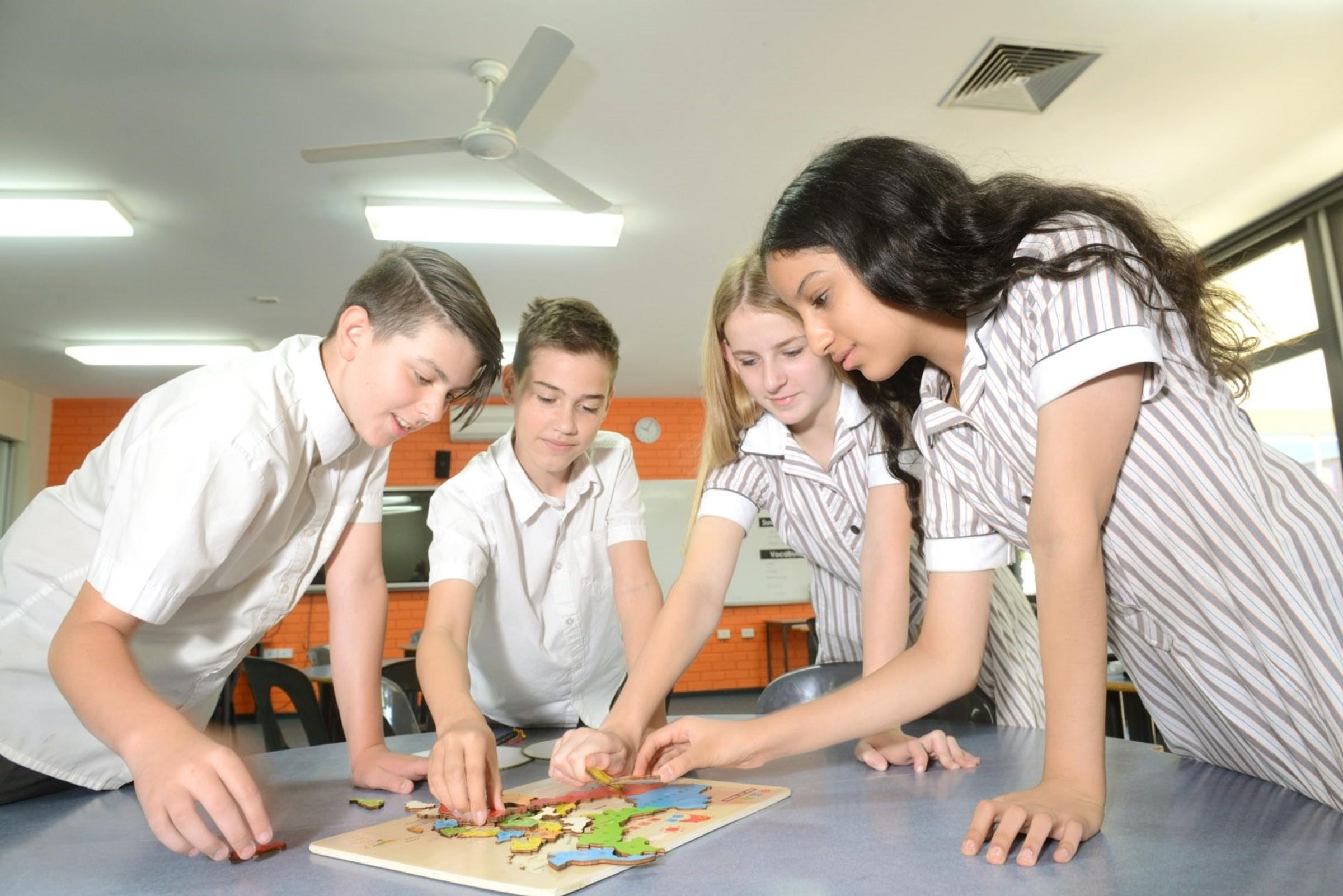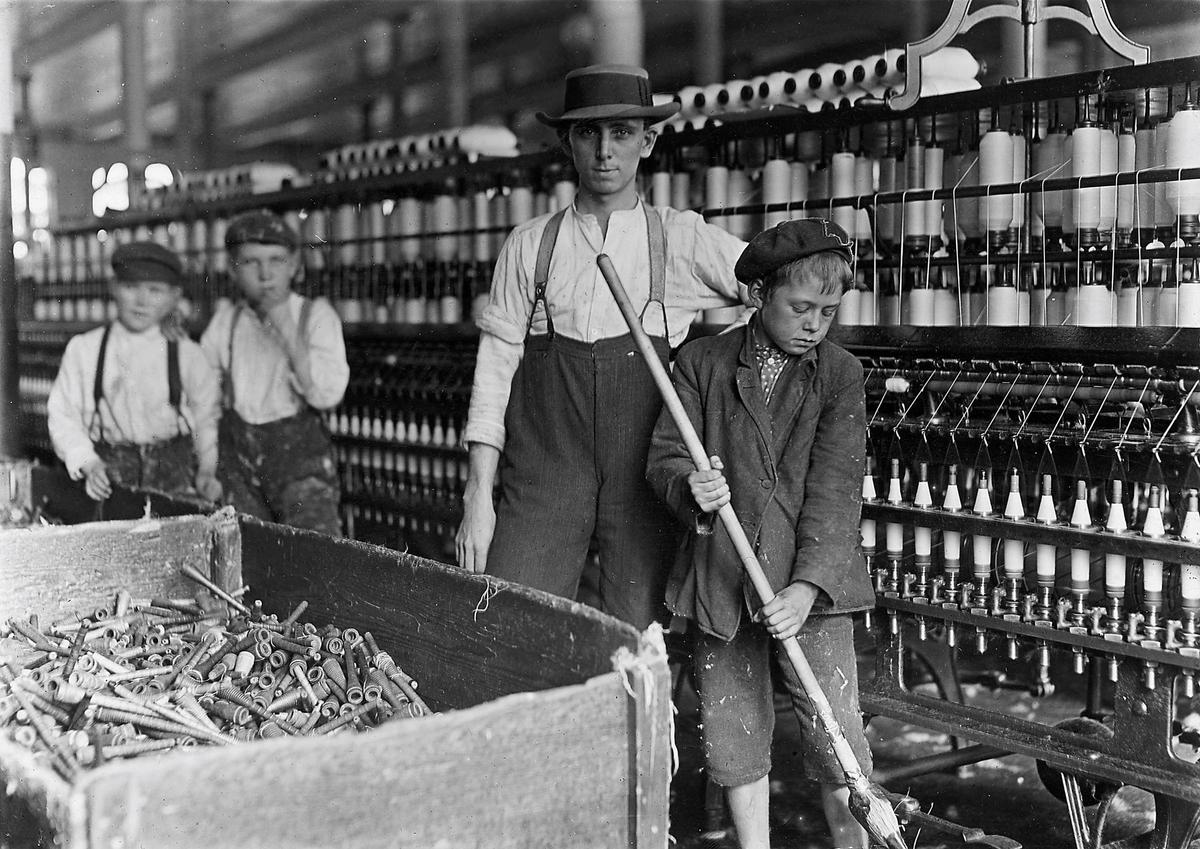Humanities & Languages

Humanities & Languages
What are our Year 9 students up to in Humanities this term so far?
CAT4 - The Industrial Revolution.
The Industrial Revolution saw the rise of factories in need of workers. Children were ideal employees because they could be paid less, and their small stature enabled them to complete tasks in factories or mines that would be challenging for adults and they were less likely to organise and strike against their pitiable working conditions. Miserable working conditions including crowded and unclean factories, a lack of safety codes or legislation and long hours were the norm. Working children were unable to attend school—creating a cycle of poverty that was difficult to break. Nineteenth century reformers and labour organisers sought to restrict child labour and improve working conditions to uplift the masses.
The task given to our Year 9 students for their CAT4 was to write a letter (creative piece) from the perspective of a child working in the Industrial Revolution to Work Safe detailing specific instances of abuse, mistreatment or violations of civil rights (fair pay, break times etc) and to seek reforms for improvements of their working condition.
Krystelles history webpage: Industrial revolution/ Child labor
Below is an example of exceptional work by Charlotte Bishop in Year 9 who happily gave us permission to publish her work:
Dear Sir/ Madam
I am writing this letter to educate you about violations of my, and fellow co-workers, human rights. My name is Anna, and I am 9 years old. I do not have a last name, as I am an orphan, and was sold off to the owners of this factory at 5 years old. I am one of the 100 children who work here at Beehive Mill in Manchester.
Every day I wake up at 4am, have a small bowl of blue porridge, and begin working. This is my only meal till dinner time, and I don’t get breaks till then. If I try and sit down, or stop for a second, the overseer takes out his belt and whips me till I’m numb. Dinner time is normally at 8pm, but sometimes it ends up being later.
We don’t get paid extra if we work over that time. We barely get paid at all for the long and painful hours we work, we’re given 1 shilling at the end of the week.
As a scavenger my job is to crawl under the machinery and pick up any loose cotton and other waste. Sounds easy enough, doesn’t it? Keep in mind though, that this is whilst it’s all still running. I’ve seen many kids have their hair pulled off, arms broken, and fingers cut clean off. I’m lucky that nothing that extreme has happened to me, however it’s inevitable that it will soon. I have had many close calls, yet by the end of the day all I’m left with is the feeling of numbness and black bruises all over me. I still wouldn’t consider myself so lucky. Some days, being hurt more is a blessing I wish for, maybe then I’d have a reason to not have to work.
Many nights I have cried myself to sleep, praying for the day I get out of here. But it never comes.
Please, Sir / Madam
I pray that you can do something about this, anything that will help us. You are our last chance, and if you cannot do anything, I’m afraid we will not make it. Even those that do make it out, they’re never the same, they carry the trauma with them forever.
Thank you, Miss / Sir, we will all remember you forever, and your efforts will greatly help us all. I only hope that you can expose these horrible people and save us, give us our freedom back.
Kind Regards,
Anna
Commerce
In Commerce, during this remote learning period, the Year 10 students, and I, have been learning about the world of business. So far, some topics that we have been learning about include:
- The differences between profit and not-for-profit organizations
- What distinguishes a small, medium and large business
- Different types of business organizations
- The history behind Australia's business environment
- The different types of business locations and
- What motivates people to create their own business.
Paige Corvell
Year 10
Ms Su-nhi Kim
Humanities & Languages Co-ordinator

